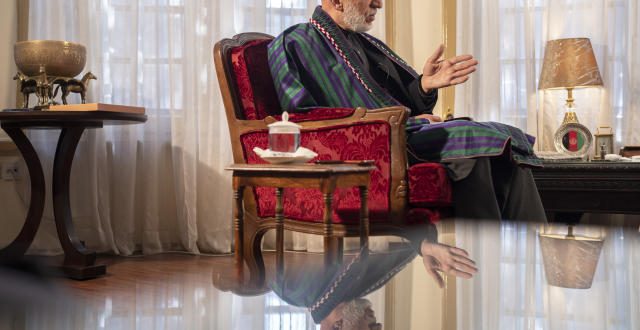AT News
KABUL: Former president Hamid Karzai has said that he had invited Taliban to enter Kabul before the takeover of the country’s capital city on August 15.
In a shift in the popular narrative, Karzai revealed that he had invited the Taliban, who had agreed to wait outside of Kabul, to discuss a negotiated power-sharing agreement, contrary to popular belief that the group had taken over the capital.
Afghanistan witnessed a swift fall of US-backed Afghan forces in the buildup to Kabul’s takeover, following months of heavy assault in key provincial cities.
“It was a request to come in and protect the population, so that the country, the city doesn’t fall into chaos and the unwanted elements who would probably loot the country, loot shops…,” he said in an interview with the Associated Press.
The negotiations with the Taliban to peacefully take over Kabul were to protect the population so that the country, the city don’t fall into chaos and the unwanted elements who would probably loot the country, Karzai told the international news agency in an interview, that was carried by The Hill.
The day the Taliban came into power they told Karzai that government officials should stay in their place and they would not invade. “I and others spoke to various officials and assurances were given to us that, yes, that was the case, that the Americans and the government forces were holding firm to the places [and] that Kabul would not fall,” Karzai said.
As negotiations were happening, Afghan President Ashraf Ghani and other government officials left the country, in a move that hindered a peaceful transition agreement, said Karzai, as reported by the Washington-based publication.
The former Afghanistan President, who has been at the helm of humanitarian affairs in Afghanistan, has been holding talks with UN officials and other stakeholders in the country.
Karzai said that the Taliban government must now do all that is necessary within the country to safeguard the interests of all Afghans.
The ongoing humanitarian crisis in Afghanistan is threatening basic rights, with women, girls, and civil society among those most affected.
On Tuesday, a senior UN rights official said that respect for fundamental rights and freedoms by authorities in Afghanistan is critical to ensuring stability in the country.
“How the de facto authorities – indeed, and the international community – address the drastic economic and humanitarian crises in the country will determine Afghans’ enjoyment of human rights, now and into the future,” said Nada Al-Nashif, United Nations Deputy High Commissioner for Human Rights, during a press briefing.
 Afghanistan Times
Afghanistan Times




